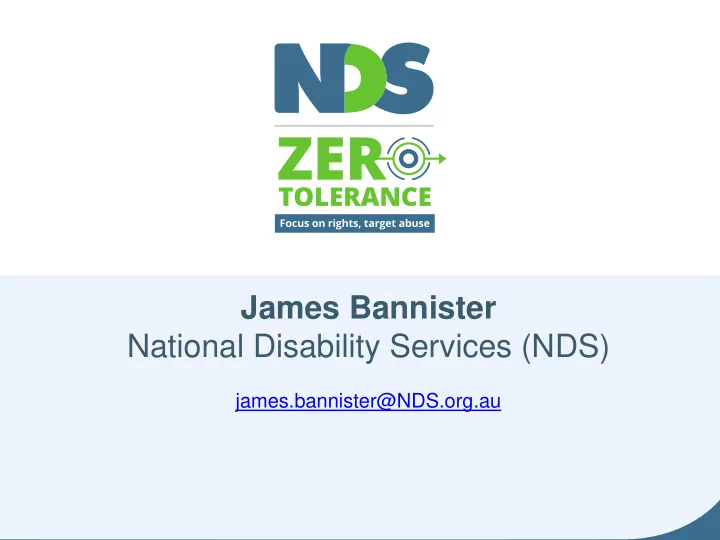

James Bannister National Disability Services (NDS) james.bannister@NDS.org.au
Disability providers told us… • lack of understanding about what abuse and neglect are • fear of speaking up • people with disability : not being believed; possible repercussion • staff : ‘rocking the boat’; challenging organisational culture / management; stigma of ‘dobbing’; fear of losing shifts / job • lack of clarity about how to report abuse (and to who) • majority of staff want to do the right thing • compliance/checklist approach not effective
‘Speaking Up About Safety’ People with disability feel safe when service providers: • listen to people with disabilities • respect people’s choices and decisions • involve people with disability in planning their services • make sure that staff can do their job properly • give people real choice about things they can do • get to know them as a person and be treated as an individual
“It doesn’t happen here…” “Agencies which deny the potential for abuse may increase risk by failing to recognise indicators”
Being ready to listen… For supervisors… • focus on ‘speaking up’ over complaints (no ‘threshold’) • reflective practice: discuss what doing well/could do better • create opportunities (formal & informal) for staff to speak up: • 1:1 catch ups; team meetings; informal chats; suggestion boxes • “ there is nothing so big or so small that we cannot talk about it ” • reinforce staff have done the right thing if speaking up • avoid authoritarian style so staff comfortable raising issues • respond promptly, appropriately and fairly
Zero Tolerance commitment All staff - ‘Zero Tolerance commitment’ Commitment to call each other out on: • anything that might make people be or feel unsafe • call each other out where human rights not being supported • anything that could be done better Visit: www.nds.org.au/resources/zero-tolerance Contact: james.bannister@NDS.org.au
Recommend
More recommend